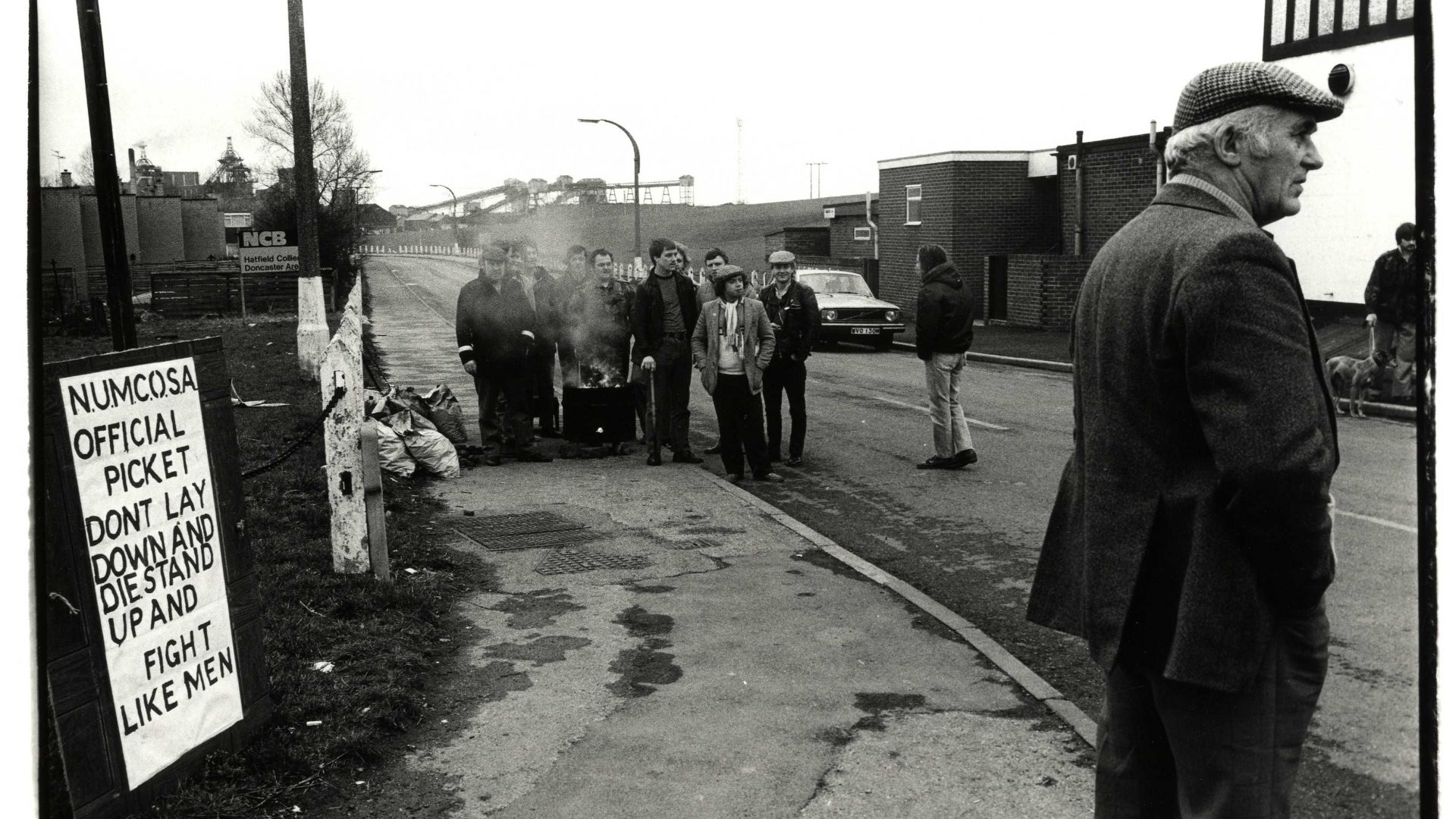Voices in the Coalshed: Picket

As we think this year about the 40th anniversary of the 1984/5 strike I thought I might look at one a word associated with striking, ‘Picket’. The word has its origins in the eighteenth century when it referred to a small group of troops who, when protecting a place, would tether their horses to pickets, stakes, in the ground.
In more modern times, picket came to mean a group of men whose role was to persuade others from working during a strike; they would be organised by a trade union. Some of the strongest images related to the strike are related to picketing.
Later still came the concept of flying, or secondary, pickets; these were people who travelled to stand alongside others on a picket line or to picket a different place as was seen in the 1972 miners’ strike when a coke works was picketed. These people would not be a part of the same union necessarily, they would be showing their support by joining the picket line. This was made illegal in the UK in 1980.
Another group of flying pickets were The Flying Pickets, a band formed in 1982, some of whose members had been involved in the 1972 and 1974 strikes. They had strong socialist views and demonstrated this by performing benefit shows to raise funds for striking miners. It is also said that members of the band joined a picket line at Drax power station.
Written by Volunteer Nicola
Image: Ross Williams